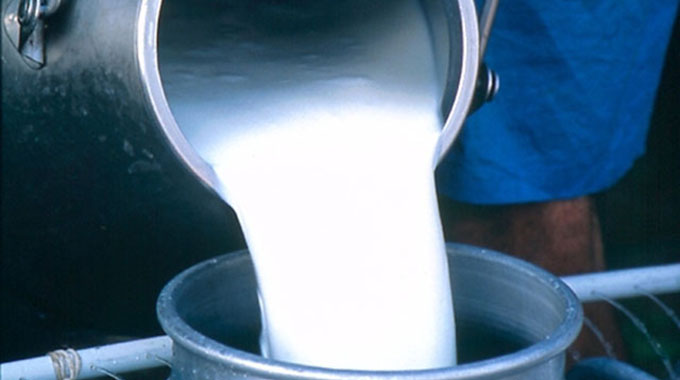
Business Reporter
The Zimbabwe Association of Dairy Farmers has expressed concern that stockpiling of milk and milk-based products across the world, could result in product dumping from developed markets at the expense of viability of local players.
The dairy farmers’ representative body national chairman Mr Kudzai Chirima, said with the dairy industry throughout the world stockpiling and affected by depressed demand effect of the lockdowns, there is high probability that dairy products will become very cheap globally.
Potential product dumping from Europe and South Africa poses a serious threat for dairy farmers as the prevailing environment leaves them uncompetitive and at risk of going out of business, said ZADF.
Milk sales are already depressed for the large and small scale processors as there was limited product distribution channels resulting in long life milk products piling at processor level.
Dairibord this week reported a 10 percent growth in milk intake, but still reported a 17 percent decline in sales volume.
This is at a time local producers and processors are faced with increased costs of raw material including feed.
According to ZADF, the Covid-19 epidemic situation, has come with speculative and expected inflation, which increased relative stock feed prices and other factors of the production by 12 percent.
“Such an increase has a negative impact on the milk production levels and quality of milk produced as stock feeds and other inputs as the imported veterinary supplies, detergents are no longer affordable to promote milk production at farm level.”
To guard against dumping, ZADF proposed that the suspension of Dairy Products Importation for locally available products.
It also proposed the facilitation of relief funding for the processors “to ensure that they keep having the capacity to buy the milk from the dairy farmers given they are locking up their resources in long life products stocking during the depressed markets caused by the Covid-19 lockdowns”.
On the rising cost of feed, ZADF said there might be need for a stock feed subsidy scheme that will help cover the losses on the milk productivity and milk quality issues.
“Any interventions that support the reduction in stock feed costs would address the high cost of milk production giving the farmers an opportunity to increase their milk productivity to sustain the National Milk Production growth,” ZADF said.
Meanwhile, milk production, which had been on an upward trajectory between January and February, where growth a two percent growth rate was recorded, turned negative in March as a result of animal feed challenges.
“The monthly milk production had a 2 percent year-on-year growth for January and February then March had a negative growth of 2, 69 percent.”
The decrease in milk volume growth is a result of animal feed challenges given the last season drought, limited production of silage and the high cost of stock feeds.
Milk production has also been impacted by the pandemic of the Covid-19 as the pandemic, which led to the lock down of the country and many other countries. Despite dairy farming enterprises having been classified as essential services, the overall movement restrictions slowed down the supply chain of stock feed, veterinary drugs, artificial insemination hormones, liquid nitrogen and limited access to laboratories for milk quality.
The shortage of diesel in the early days of the lockdown resulted in some of the farmers cutting their silage late and therefore compromising the quality of the silage for the 2020 season. — ebusinessweekly.co,zw
